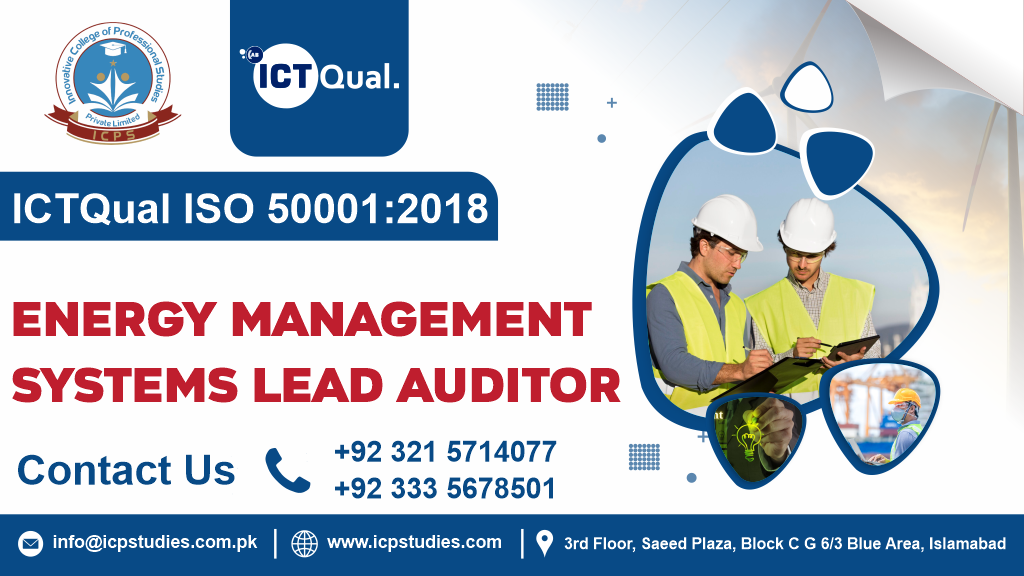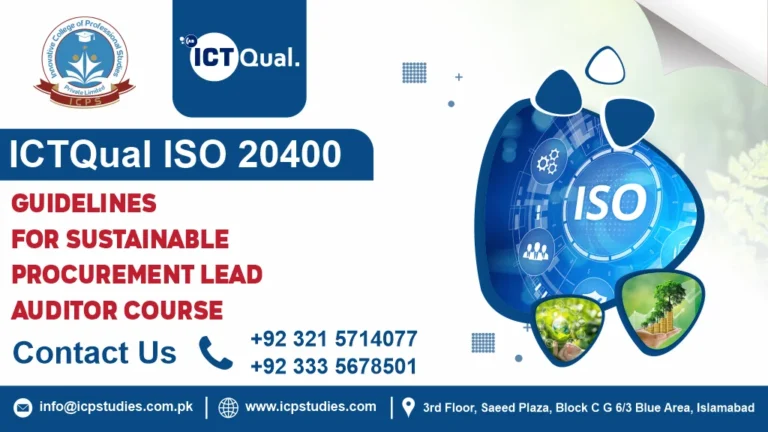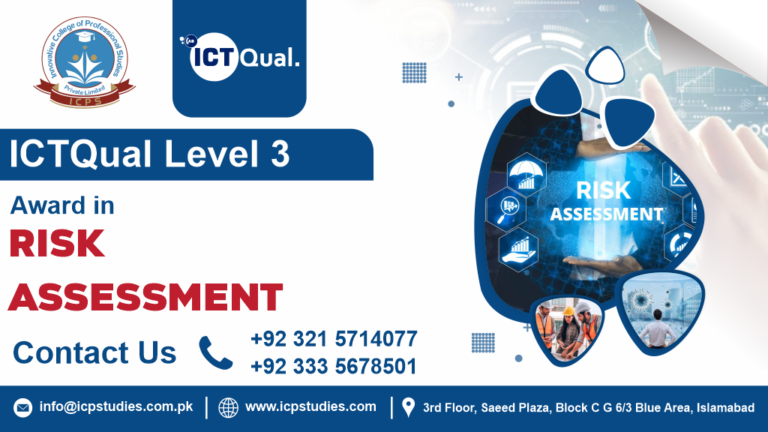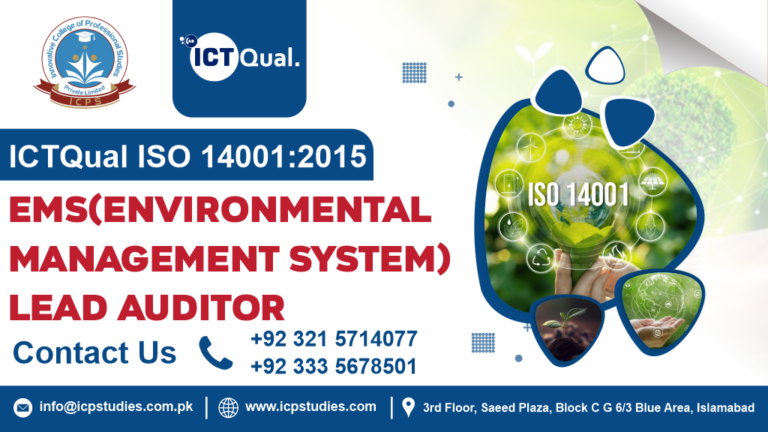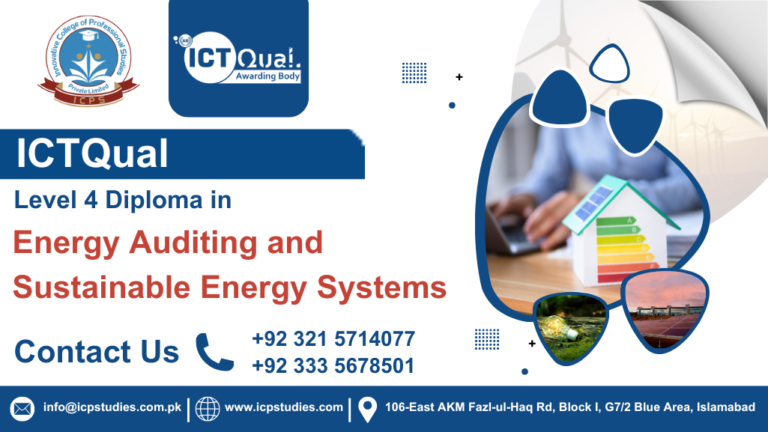In an era where energy efficiency is crucial for both environmental sustainability and cost reduction, organizations are increasingly turning to robust standards to guide their energy management practices. ISO 50001:2018 stands at the forefront of this effort, providing a framework for organizations to manage energy performance effectively. For professionals looking to lead and drive improvements in energy management, the ISO 50001:2018 Energy Management Systems Lead Auditor Course offers essential training and certification.
The ISO 50001:2018 Energy Management Systems Lead Auditor Course is designed to equip professionals with the skills needed to conduct comprehensive audits of energy management systems based on the ISO 50001:2018 standard. This course covers the principles and practices of auditing energy management systems, including planning, execution, and reporting. As a Lead Auditor, you will play a pivotal role in assessing and enhancing the energy performance of organizations, helping them achieve their sustainability and efficiency goals.
The ISO 50001:2018 Energy Management Systems Lead Auditor Course is a vital step for professionals aiming to lead audits and drive improvements in energy management practices. By equipping you with the skills and knowledge to assess and enhance energy management systems, this course supports your career growth while helping organizations achieve greater energy efficiency and sustainability. Whether you’re an experienced auditor or new to the field, this course provides the expertise needed to excel in the dynamic world of energy management.
All About ICTQual ISO 50001:2018 Energy Management Systems Lead Auditor
Course Overview
The ISO 50001:2018 Energy Management Systems Lead Auditor is a professional certification that signifies expertise in auditing energy management systems (EnMS) based on the ISO 50001:2018 standard. This role involves evaluating an organization’s energy management practices to ensure compliance with ISO 50001:2018, which provides a framework for optimizing energy use and improving energy performance.
ISO 50001:2018 Lead Auditor can significantly enhance career prospects in energy management and auditing. It positions professionals as experts in evaluating and improving energy management systems, making them valuable assets to organizations striving to meet energy efficiency and sustainability goals. This certification also opens opportunities for advanced roles in quality management, environmental compliance, and sustainability consulting.
Study Units
- Introduction to ISO 50001:2018
- Energy Management Fundamentals
- ISO 50001:2018 Requirements
- Auditing Principles and Practices
- Audit Preparation and Documentation Review
- Conducting On-site Audits
- Audit Reporting and Follow-up
- Responsibilities of EnMS internal auditors
- Audit Team Management and Communication
- Integration of EnMS internal audit with other management systems
- Planning, preparation, conducting and documentation of EnMS internal audit
To enroll in the ICTQual ISO 50001:2018 Energy Management Systems Lead Auditor course, participants typically need to meet the following requirements:
- Age Requirement: Participants should be at least 18 years old.
- Basic Literacy: A good understanding of English is essential, as course materials and instruction are primarily in English.
- Professional Background: Familiarity with energy management systems or relevant experience in energy management is beneficial.
- Prior Knowledge: Participants should have a basic understanding of ISO 50001:2018 standards and general auditing principles.
- Course Registration: Participants must register for the course through an authorized training provider.
- Payment: Course fees must be paid as required by the training provider.
- Commitment to Attend: Participants should be prepared to attend the full duration of the course to receive certification.
The ICTQual ISO 50001:2018 Energy Management Systems Lead Auditor course is designed for:
- Lead Auditors: Individuals responsible for conducting audits of energy management systems in various organizations.
- Energy Managers: Professionals tasked with implementing and overseeing energy management practices within their organizations.
- Quality and Environmental Managers: Individuals involved in integrating energy management with other management systems, such as ISO 9001 or ISO 14001.
- Compliance Officers: Professionals ensuring that organizations adhere to energy-related regulations and standards.
- Consultants: Those providing advisory services on energy management and sustainability practices.
- Anyone Seeking ISO 50001 Certification: Individuals looking to enhance their knowledge and skills in energy management for career advancement.
Learning Outcome
1. Introduction to ISO 50001:2018
Learning Outcomes:
- Understand the Scope: Gain a comprehensive understanding of the ISO 50001:2018 standard, including its purpose and how it supports effective energy management.
- Identify Key Components: Recognize the structure and key components of the ISO 50001:2018 standard, including its clauses and the framework for energy management systems (EnMS).
- Contextualize Application: Explain how ISO 50001:2018 integrates with organizational objectives and sustainability goals.
2. Energy Management Fundamentals
Learning Outcomes:
- Understand Energy Management: Develop a foundational knowledge of energy management principles and practices, including the significance of energy performance and efficiency.
- Apply Key Concepts: Learn key concepts such as energy consumption, energy performance indicators, and the role of energy audits in improving energy management.
- Assess Energy Usage: Analyze energy usage patterns and identify opportunities for energy savings and efficiency improvements within an organization.
3. ISO 50001:2018 Requirements
Learning Outcomes:
- Interpret Requirements: Understand and interpret the specific requirements of ISO 50001:2018, including planning, implementation, monitoring, and review of the energy management system.
- Evaluate Compliance: Assess how organizations meet the requirements of ISO 50001:2018 and identify areas for compliance and improvement.
- Implement Standards: Learn how to apply the standard’s requirements to real-world scenarios to enhance energy management practices.
4. Auditing Principles and Practices
Learning Outcomes:
- Learn Auditing Fundamentals: Understand the principles and methodologies of auditing, including the purpose and types of audits.
- Apply Auditing Techniques: Develop skills in auditing techniques, including planning, executing, and reporting on audits.
- Evaluate Performance: Gain the ability to evaluate the effectiveness and efficiency of energy management systems through auditing practices.
5. Audit Preparation and Documentation Review
Learning Outcomes:
- Prepare for Audits: Learn how to effectively plan and prepare for audits, including defining the scope, objectives, and criteria.
- Review Documentation: Develop skills in reviewing and analyzing documentation related to energy management systems, ensuring it aligns with ISO 50001:2018 requirements.
- Identify Audit Evidence: Identify and gather relevant evidence needed for a comprehensive audit evaluation.
6. Conducting On-site Audits
Learning Outcomes:
- Execute On-site Audits: Gain practical experience in conducting on-site audits, including interviewing personnel, observing processes, and gathering evidence.
- Assess Compliance: Evaluate the organization’s compliance with ISO 50001:2018 during the on-site audit.
- Document Findings: Learn how to document observations and findings accurately during the audit process.
7. Audit Reporting and Follow-up
Learning Outcomes:
- Prepare Audit Reports: Develop the ability to prepare detailed and accurate audit reports that document findings and provide actionable recommendations.
- Implement Follow-up Actions: Learn how to follow up on audit findings and ensure that corrective actions are implemented effectively.
- Communicate Results: Communicate audit results clearly and constructively to stakeholders, ensuring that identified issues are addressed.
8. Responsibilities of EnMS Internal Auditors
Learning Outcomes:
- Understand Roles: Understand the roles and responsibilities of internal auditors within an energy management system.
- Conduct Internal Audits: Learn how to perform internal audits effectively, including assessing the performance of the EnMS and identifying areas for improvement.
- Support Compliance: Support the organization in maintaining compliance with ISO 50001:2018 through effective internal auditing practices.
9. Audit Team Management and Communication
Learning Outcomes:
- Manage Audit Teams: Develop skills in managing and leading audit teams, including coordinating activities and ensuring effective teamwork.
- Enhance Communication: Learn effective communication strategies for interacting with audit team members and organizational staff.
- Ensure Efficiency: Ensure that audit processes are conducted efficiently and effectively through strong team management and communication.
10. Integration of EnMS Internal Audit with Other Management Systems
Learning Outcomes:
- Understand Integration: Learn how to integrate EnMS internal audits with other management systems, such as quality, environmental, and health and safety management systems.
- Streamline Processes: Develop strategies for streamlining audit processes across different management systems to improve overall organizational efficiency.
- Apply Best Practices: Apply best practices for integrating audits and leveraging synergies between different management systems.
11. Planning, Preparation, Conducting, and Documentation of EnMS Internal Audit
Learning Outcomes:
- Plan and Prepare Audits: Master the skills required for planning and preparing internal audits, including setting objectives and developing audit plans.
- Conduct Audits: Gain hands-on experience in conducting internal audits, including executing audit activities and gathering evidence.
- Document and Report: Learn how to document the audit process thoroughly and prepare comprehensive reports that reflect the audit findings and recommendations.
These learning outcomes ensure that participants in the ISO 50001:2018 Energy Management Systems Lead Auditor Course acquire the comprehensive knowledge and practical skills needed to effectively audit energy management systems and contribute to enhanced energy performance and sustainability within organizations.
FAQs about ICTQual ISO 50001:2018 Energy Management Systems Lead Auditor

